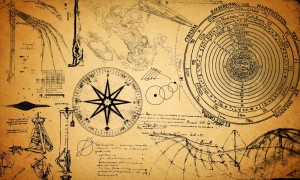The Long Road Toward Mastery
- At November 02, 2018
- By rbadmin
- In Uncategorized
 0
0
“Mastery is not a function of genius or talent, it is a function of time and intense focus applied to a particular field of knowledge.” – Robert Greene
Those of us in creative professions—writers, graphic designers, computer programmers, artists of every variety—often feel like we’re not good enough. We compare our work to others’ and to the chimerical notions of perfection we have in our heads.
The more we learn, the more skills we develop, the more we realize what we don’t know and how far we still have to go.
It’s okay. It’s part of the package, and the feeling never truly goes away unless we give up.
In his book, Outliers, Malcolm Gladwell argues that it takes roughly 10,000 hours of dedicated practice to achieve proficiency in a difficult skill such as playing a musical instrument. That’s the equivalent of working 40 hours a week for five years.
Raymond Chandler used to tell young writers that they had to write a million words of crap before they’d ever get anything published. That’s the equivalent of ten or more books.
Legendary animation director Chuck Jones went even further. To artists he said, “you’ve got a million bad drawings inside you and the sooner you get them out, the better.”
If it takes such an extraordinary amount of time and effort to reach even a basic level of competence, how long does it take to actually master this stuff?
As it turns out, true mastery of the most difficult crafts is impossible.
In his book, Mastery: The Keys to Success and Long-Term Fulfillment, George Leonard describes three types of people who take on long-term endeavors and fail—the Dabbler, the Obsessive and the Hacker.
The Dabbler begins with tremendous enthusiasm and is thrilled with his first burst of progress, yet he soon finds himself on a plateau where there is no apparent improvement. He soon moves on to something else.
The Obsessive wants results, and she wants them fast. She usually gets them fast, too, because she’s willing to pull out all the stops. Unlike her friend the Dabbler, when she finds herself on the plateau without any apparent improvement, she doubles down on her efforts. Her intense energy helps her persevere for a while, and she may rise a level or even two beyond the first plateau, but a leveling-off followed by a painful decline is all but inevitable in her future, and probably sooner rather than later.
Meanwhile, the Hacker doesn’t mind the plateau. He’s perfectly content coasting along indefinitely without even trying to improve as long as he performs well enough to make a living and without getting fired.
Then there is a fourth kind of person, the kind who willingly walks and vows to stay on an infinite road. She grinds it out day after day, week after week, month after month, year after year and decade after decade for the whole of her life. She spends nearly all her time on one plateau or another, but she improves by increments, and at times by leaps and bounds, with each plateau rising higher than the last. She never reaches the top—there is no top—but she produces a body of work over a lifetime that seemed unimaginable when she started.
Walking an infinite road can be intimidating at times, but ultimately it is liberating. You don’t have to keep asking yourself when you will finally get there because no final destination exists. The road toward mastery is longer than a human lifespan. No matter how far we walk or paddle or drive, the horizon remains in the distance.
“To love the plateau is to love the eternal now,” Leonard writes, “to enjoy the inevitable spurts of progress and the fruits of accomplishment, then serenely to accept the new plateau that waits just beyond them.”
Enjoy the journey.

